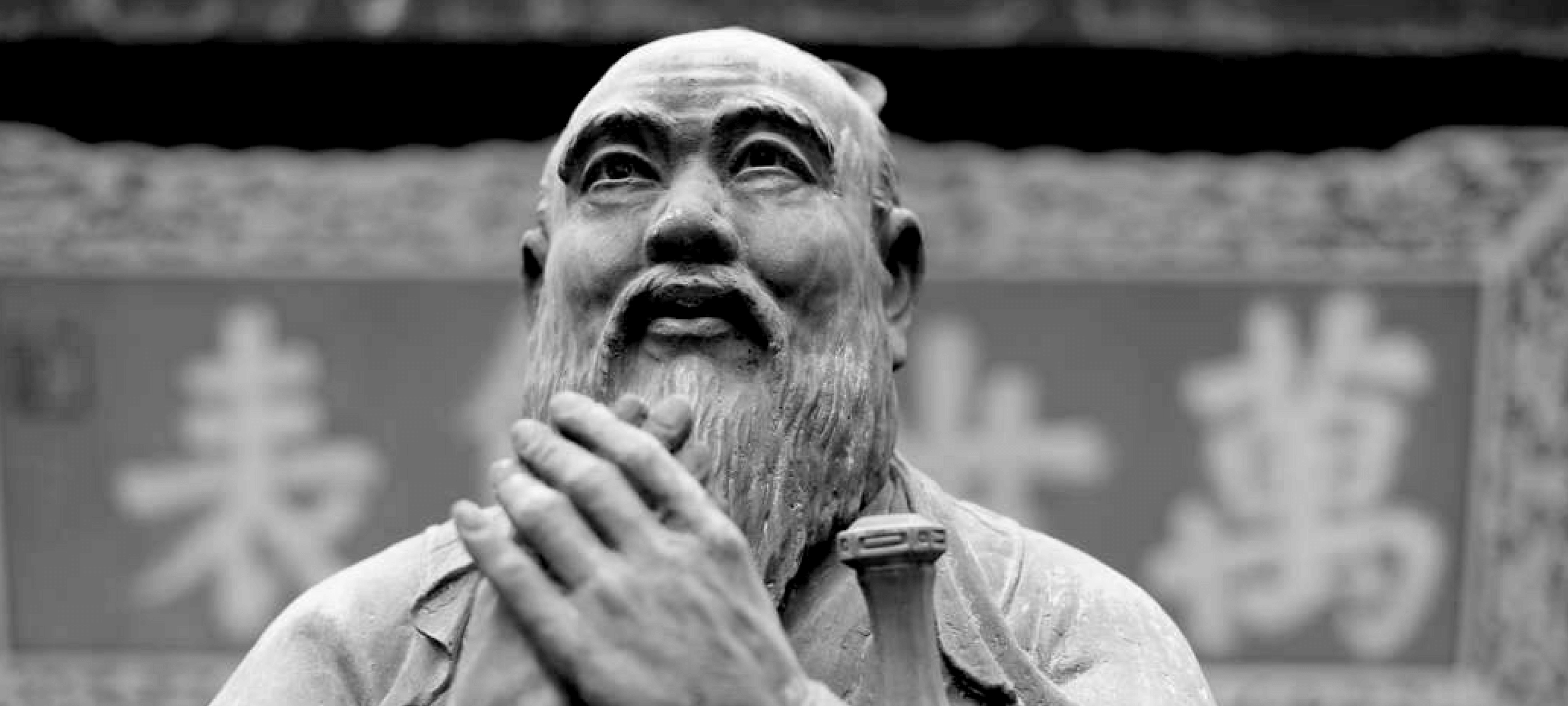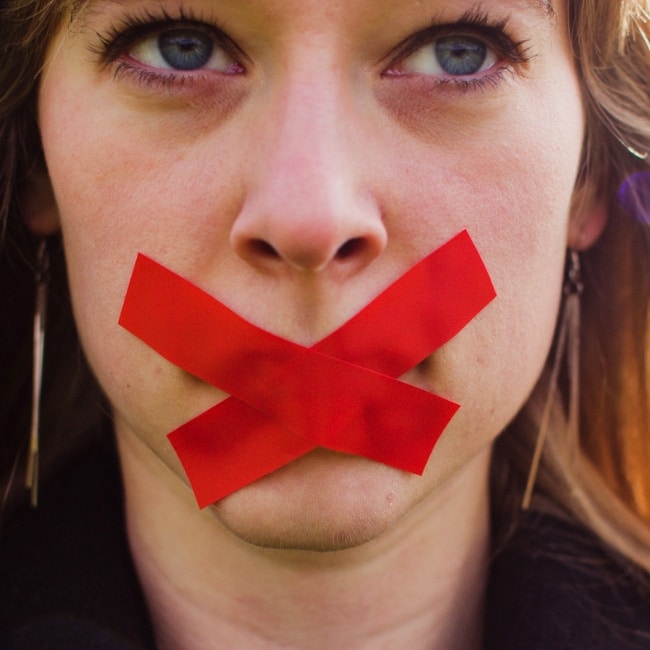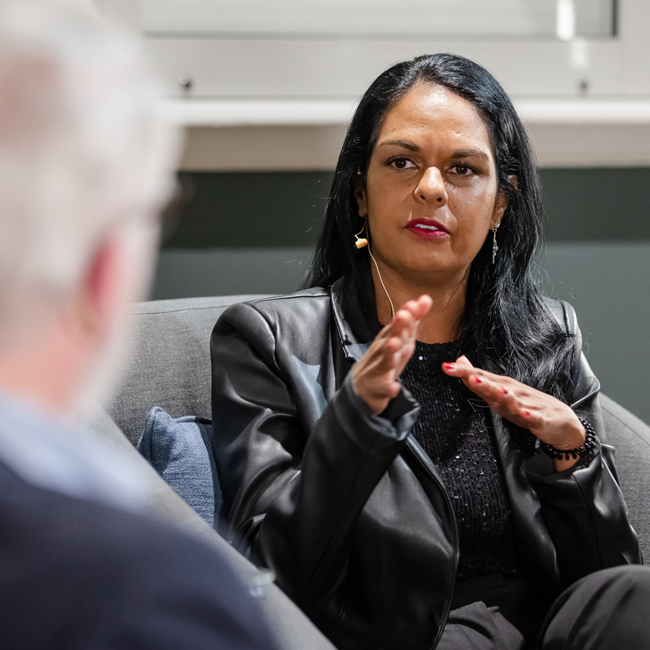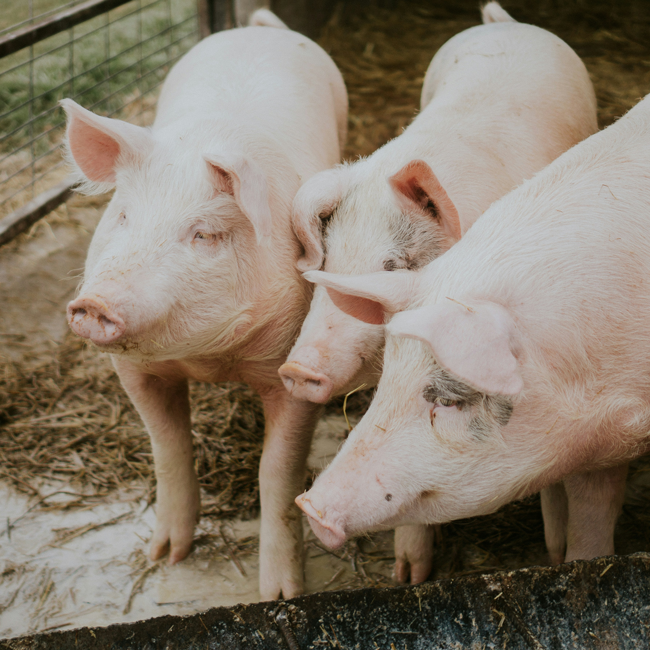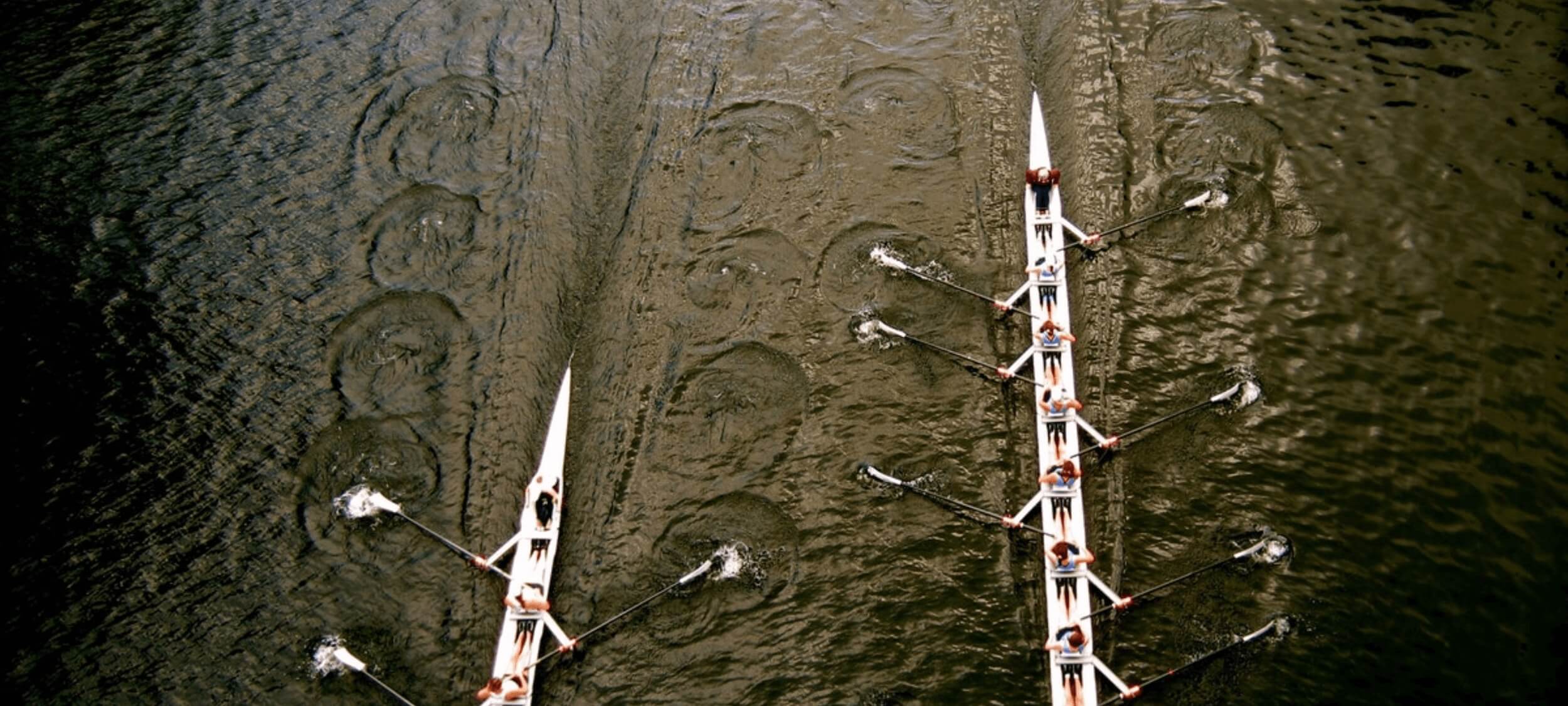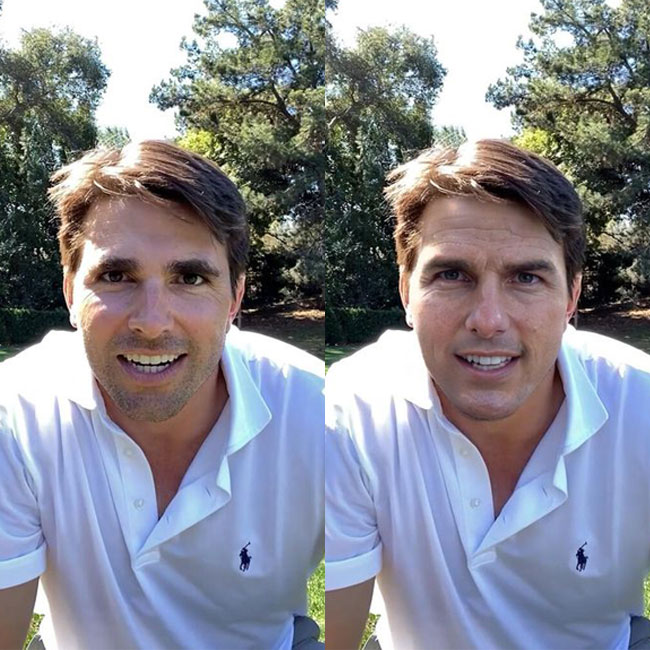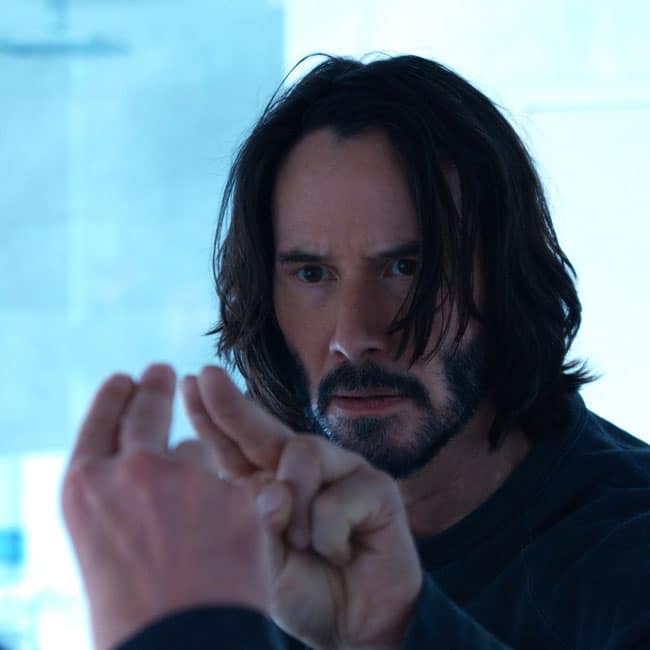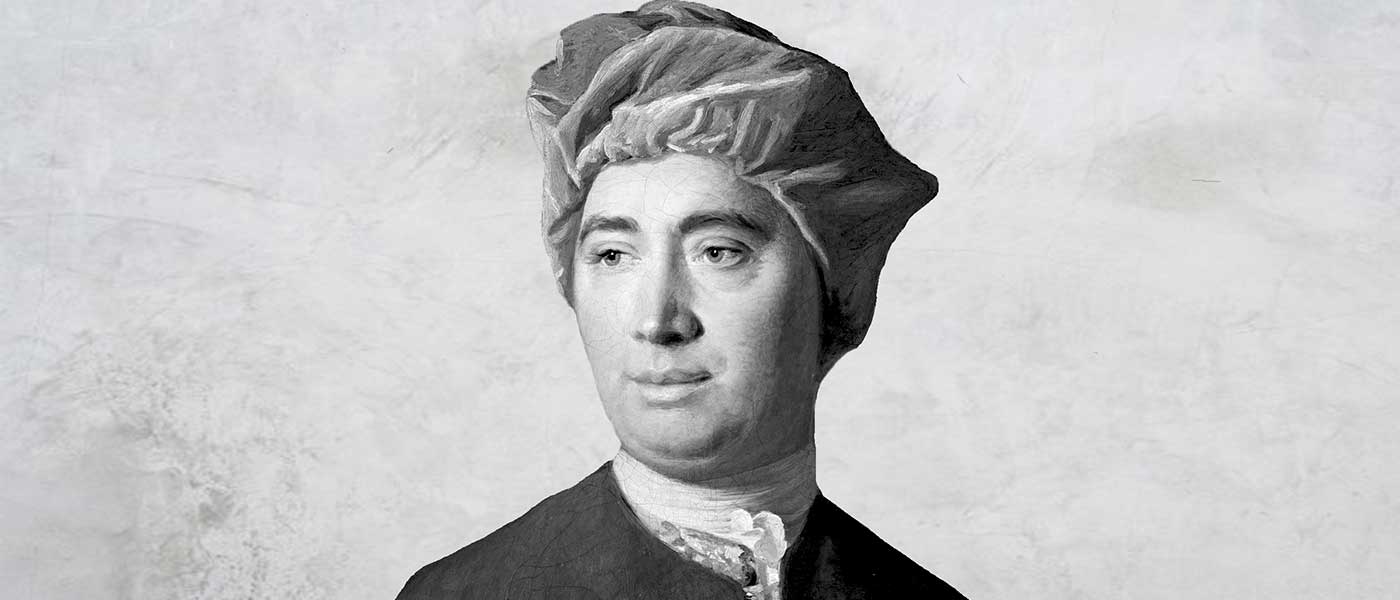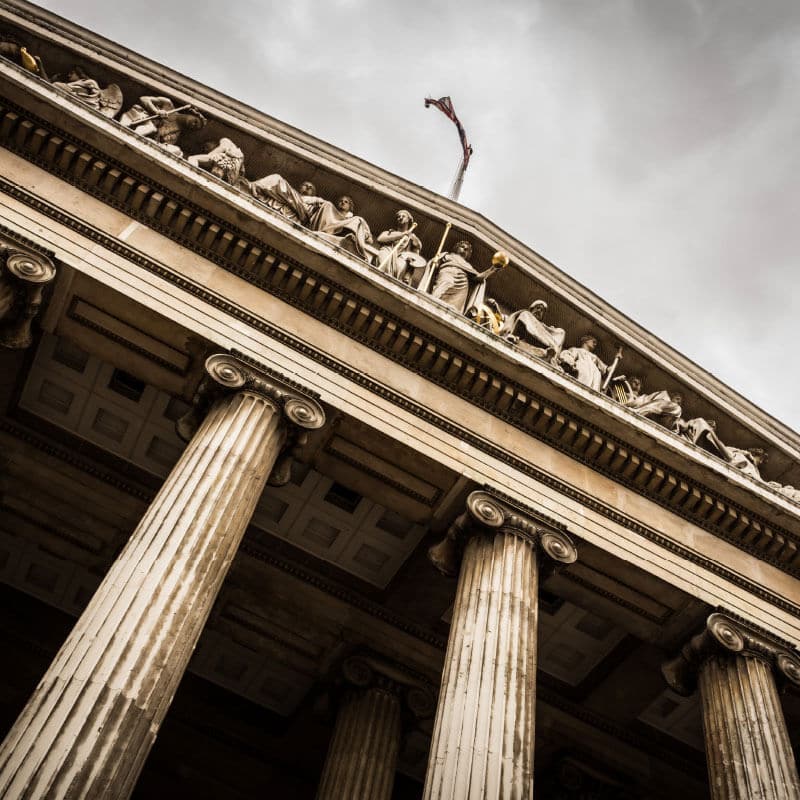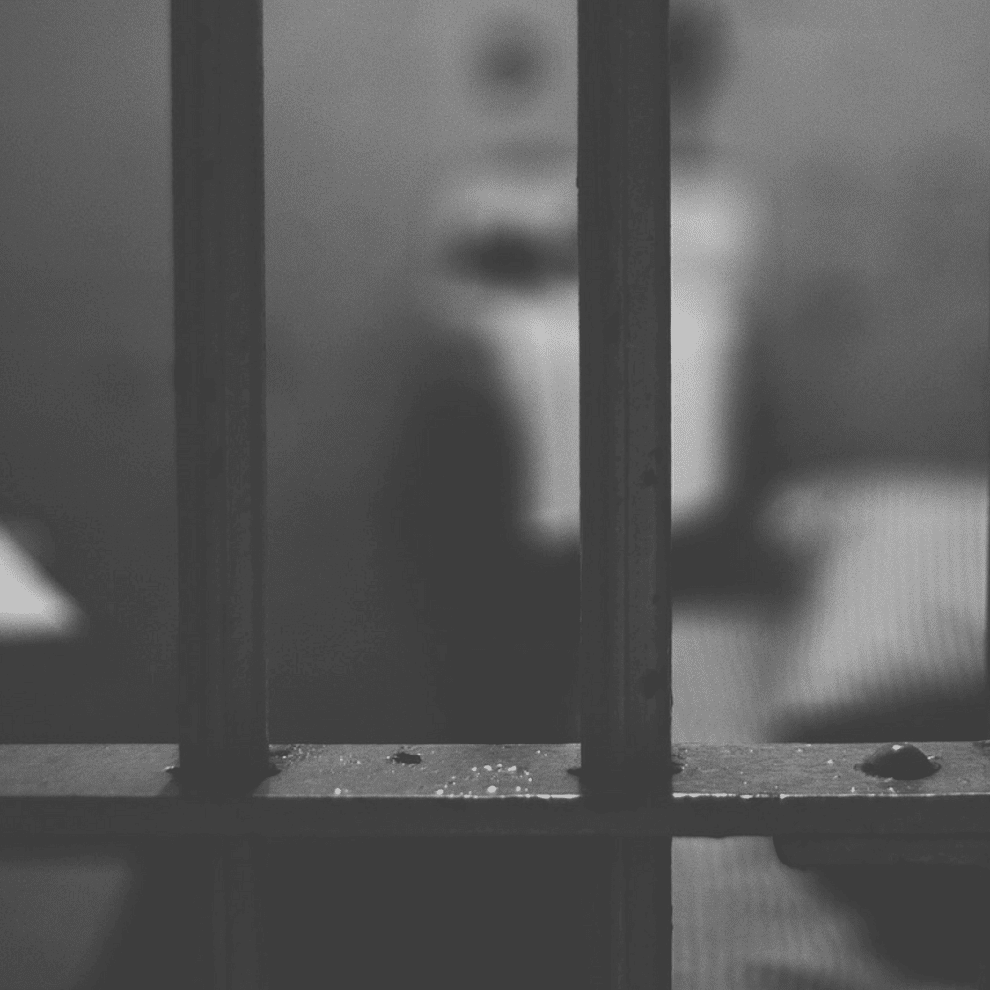A burning question about the bushfires

A burning question about the bushfires
Opinion + AnalysisClimate + EnvironmentPolitics + Human RightsRelationships
BY Simon Longstaff The Ethics Centre 16 JAN 2020
At the height of the calamity that has been the current bushfire season, people demanded to know why large parts of our country were being ravaged by fires of a scale and intensity seldom seen.
In answer, blame has been sheeted home to the mounting effects of climate change, to failures in land management, to our burgeoning population, to the location of our houses, to the pernicious deeds of arsonists…
However, one thing has not made the list, ethical failure.
I suspect that few people have recognised the fires as examples of ethical failure. Yet, that is what they are. The flames were fuelled not just by high temperatures, too little rain and an overabundance of tinder-dry scrub. They were also the product of unthinking custom and practice and the mutation of core values and principles into their ‘shadow forms’.
Bushfires are natural phenomena. However, their scale and frequency are shaped by human decisions. We know this to be true through the evidence of how Indigenous Australians make different decisions – and in doing so – produce different effects.
Our First Nations people know how to control fire and through its careful application help the country to thrive. They have demonstrated (if only we had paid attention) that there was nothing inevitable about the destruction unleashed over the course of this summer. It was always open to us to make different choices which, in turn, would have led to different outcomes.
This is where ethics comes in. It is the branch of philosophy that deals with the character and quality of our decisions; decisions that shape the world. Indeed, constrained only by the laws of nature, the most powerful force on this planet is human choice. It is the task of ethics to help people make better choices by challenging norms that tend to be accepted without question.
This process asks people to go back to basics – to assess the facts of the matter, to challenge assumptions, to make conscious decisions that are informed by core values and principles. Above all, ethics requires people to accept responsibility for their decisions and all that follows.
This catastrophe was not inevitable. It is a product of our choices.
For example, governments of all persuasions are happy to tell us that they have no greater obligation than to keep us safe. It is inconceivable that our politicians would ignore intelligence suggesting that a terrorist attack might be imminent. They would not wait until there was unanimity in the room. Instead, our governments would accept the consensus view of those presenting the intelligence and take preventative action.
So, why have our political leaders ignored the warnings of fire chiefs, defence analysts and climate scientists? Why have they exposed the community to avoidable risks of bushfires? Why have they played Russian Roulette with our future?
It can only be that some part of society’s ‘ethical infrastructure’ is broken.
In the case of the fires, we could have made better decisions. Better decisions – not least in relation to the challenges of global emissions, climate change, how and where we build our homes, etc. – will make a better world in which foreseeable suffering and destruction is avoided. That is one of the gifts of ethics.
Understood in this light, there is nothing intangible about ethics. It permeates our daily lives. It is expressed in phenomena that we can sense and feel.
So, if anyone is looking for a physical manifestation of ethical failure – breathe the smoke-filled air, see the blood-red sky, feel the slap from a wall of heat, hear the roar of the firestorm.
The fires will subside. The rains will come. The seasons will turn. However, we will still be left to decide for the future. Will our leaders have the moral courage to put the public interest before their political fortunes? Will we make the ethical choice and decide for a better world?
It is our task, at The Ethics Centre, to help society do just that.
Ethics in your inbox.
Get the latest inspiration, intelligence, events & more.
By signing up you agree to our privacy policy
You might be interested in…
Opinion + Analysis
Health + Wellbeing, Relationships, Society + Culture
Look at this: the power of women taking nude selfies
Big thinker
Politics + Human Rights, Relationships
Big Thinker: Confucius
Opinion + Analysis
Health + Wellbeing, Relationships
Are there any powerful swear words left?
Opinion + Analysis
Politics + Human Rights, Relationships, Society + Culture
In the face of such generosity, how can racism still exist?
BY Simon Longstaff
Simon Longstaff began his working life on Groote Eylandt in the Northern Territory of Australia. He is proud of his kinship ties to the Anindilyakwa people. After a period studying law in Sydney and teaching in Tasmania, he pursued postgraduate studies as a Member of Magdalene College, Cambridge. In 1991, Simon commenced his work as the first Executive Director of The Ethics Centre. In 2013, he was made an officer of the Order of Australia (AO) for “distinguished service to the community through the promotion of ethical standards in governance and business, to improving corporate responsibility, and to philosophy.” Simon is an Adjunct Professor of the Australian Graduate School of Management at UNSW, a Fellow of CPA Australia, the Royal Society of NSW and the Australian Risk Policy Institute.
BY The Ethics Centre
The Ethics Centre is a not-for-profit organisation developing innovative programs, services and experiences, designed to bring ethics to the centre of professional and personal life.
How to respectfully disagree

We seem to have no trouble hurling opinions at each other. It is easy enough to form into irresistible blocks of righteous indignation. But discussion – why do we find it so hard?
What happened to the serious playfulness that used to allow us to pick apart an argument and respectfully disagree? When did life become ‘all or nothing’, a binary choice between ‘friend or foe’?
Perhaps this is what happens when our politics and our media come to believe they can only thrive on a diet of intense difference. Today, every issue must have its champions and villains. Things that truly matter just overwhelm us with their significance. Perhaps we feel ungainly and unprepared for the ambiguities of modern life and so clutch on to simple certainties.
Today, every issue must have its champions and villains. Perhaps we feel ungainly and unprepared for the ambiguities of modern life and so clutch on to simple certainties.
Indeed, I think this must be it. Most of us have a deep-seated dislike of ambiguity. We easily submit to the siren call of fundamentalists in politics, religion, science, ethics… whatever. They sing to us of a blissful state within which they will decide what needs to be done and release us from every burden except obedience.
But there is a price to pay for certainty. We must pay with our capacity to engage with difference, to respect the integrity of the person who holds a principled position opposed to our own. It is a terrible price we pay.
The late, great cultural theorist and historian Robert Hughes ended his history of Australia, The Fatal Shore, with an observation we would do well to heed.
“The need for absolute goodies and absolute baddies runs deep in us, but it drags history into propaganda and denies the humanity of the dead: their sins, their virtues, their failures. To preserve complexity, and not flatten it under the weight of anachronistic moralising, is part of the historian’s task.”
And so it is for the living. The ‘flat man’ of history is quite unreal. The problem is too many of us behave as if we are surrounded by such creatures. They are the commodities of modern society, the stockpile to be allocated in the most efficient and economical manner.
Each of them has a price because none of them is thought to be of intrinsic value. Their beliefs are labels, their deeds are brands. We do not see the person within. So, we pitch our labels against theirs – never really engaging at a level below the slogan.
It was not always so. It need not be so.
I have learned one of the least productive things one can do is seek to prove to another person they are wrong. Despite knowing this, it is a mistake I often make and always end up wishing I had not.
The moment you set out to prove the error of another person is the moment they stop listening to you. Instead, they put up their defences and begin arranging counter-arguments (or sometimes just block you out).
Far better it is to make the attempt (and it must be a sincere attempt) to take the person and their views entirely seriously. You have to try to get into their shoes, to see the world through their eyes. In many cases people will be surprised by a genuine attempt to understand their perspective. In most cases they will be intrigued and sometimes delighted.
The aim is to follow the person and their arguments to a point where they will go no further in pursuit of their own beliefs. Usually, the moment presents itself when your interlocutor tells you there is a line, a boundary they will not cross. That is when the discussion begins.
At that point, it is reasonable to ask, “Why so far, but no further?” Presented as a case of legitimate interest (and not as a ‘gotcha’ moment) such a question unlocks the possibility of a genuinely illuminating discussion.
To follow this path requires mutual respect. Recognition that people of good will can have serious disagreements without either of them being reduced to a ‘monstrous’ flat man of history. It probably does not help that so much social media is used to blaze emotion or to rant and bully under cover of anonymity. People now say and do online things few would dare if standing face-to-face with another.
It probably does not help that we are becoming desensitised to the pain we cause the invisible victims of a cruel jibe or verbal assault. Nor does it help that the liberty of free speech is no longer understood to be matched by an implied duty of ethical restraint.
I am hoping the concept of respectful disagreement might make a comeback. I am hoping we might relearn the ability to discuss things that really matter – those hot, contentious issues that justifiably inflame passions and drive people to the barricades. I am hoping we can do so with a measure of good will. If there is to be a contest of ideas, then let it be based on discussion.
Then we might discover there are far more bad ideas than there are bad people.
Ethics in your inbox.
Get the latest inspiration, intelligence, events & more.
By signing up you agree to our privacy policy
You might be interested in…
Opinion + Analysis
Relationships
Who are you? Why identity matters to ethics
Opinion + Analysis
Health + Wellbeing, Politics + Human Rights, Relationships
There’s more than lives at stake in managing this pandemic
Explainer
Relationships
Ethics explainer: Nihilism
Opinion + Analysis
Relationships, Society + Culture
What money and power makes you do: The craven morality of The White Lotus
BY Simon Longstaff
Simon Longstaff began his working life on Groote Eylandt in the Northern Territory of Australia. He is proud of his kinship ties to the Anindilyakwa people. After a period studying law in Sydney and teaching in Tasmania, he pursued postgraduate studies as a Member of Magdalene College, Cambridge. In 1991, Simon commenced his work as the first Executive Director of The Ethics Centre. In 2013, he was made an officer of the Order of Australia (AO) for “distinguished service to the community through the promotion of ethical standards in governance and business, to improving corporate responsibility, and to philosophy.” Simon is an Adjunct Professor of the Australian Graduate School of Management at UNSW, a Fellow of CPA Australia, the Royal Society of NSW and the Australian Risk Policy Institute.
Beyond the headlines of the Westpac breaches
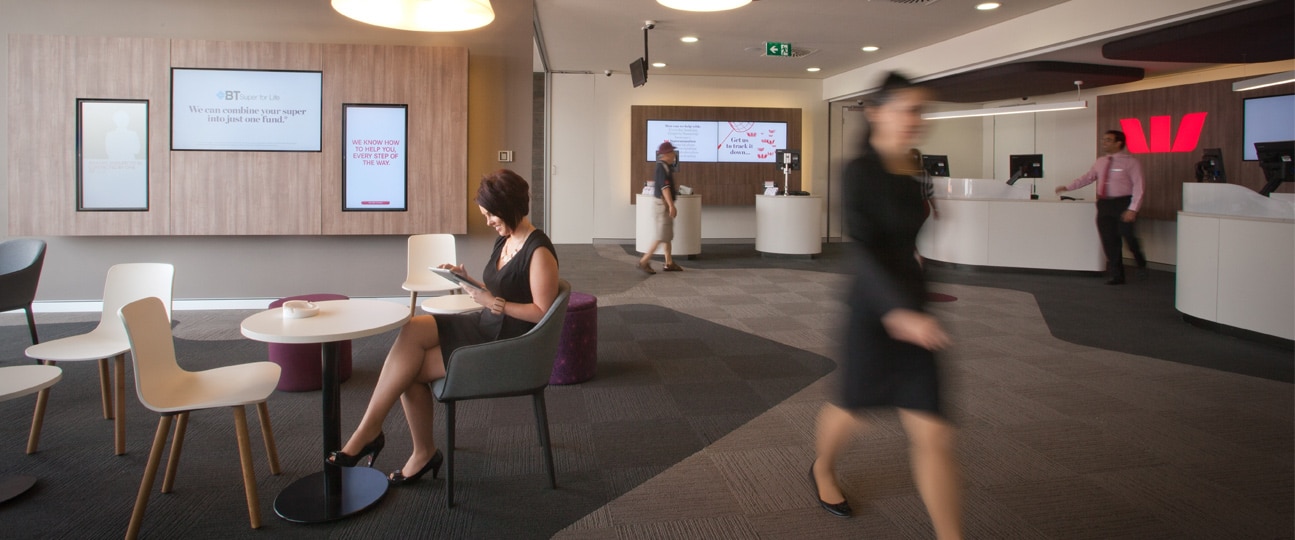
Beyond the headlines of the Westpac breaches
Opinion + AnalysisBusiness + LeadershipRelationships
BY Simon Longstaff The Ethics Centre 28 NOV 2019
As I look back on the week of turmoil that has engulfed Westpac, my overwhelming feeling is one of sadness.
I am sad for the children whose lives may have been savaged by sexual predators using the bank’s faulty systems. I am sad for the tens of thousands of Westpac employees who may feel tainted by association with the bank’s failings. I am sad for individuals, like Brian Hartzer and Lindsay Maxsted, whom I believe will be remembered more for the manner of their parting from the bank than for all the good that they did along the way. All of them deserve better.
None of this lessens my judgement about the seriousness of the faults identified by Austrac. Nor is sadness a reason for limiting the adverse consequences borne by individuals and the company.
Rather, in the pell-mell of the moment – super-charged by media and politicians enjoying a ‘gotcha’ moment – it is easy to forget the human dimension of what has occurred – whether it be the impact on the victims of sexual exploitation or the person whose pride in their employer has been dented.
Behind the headlines, beyond the outrage, there are people whose lives are in turmoil. Some are very powerful. Some are amongst the most vulnerable in the world. They are united by the fact that they are all hurt by failures of this magnitude.
For Westpac’s part, the company has not sought to downplay the seriousness of what has occurred. There has not been any deflection of blame. There has been no attempt to bury the truth. If anything, the bank’s commitment to a thorough investigation of underlying causes has worked to its disadvantage – especially in a world that demands that the acceptance of responsibility be immediate and consequential.
The issue of responsibility has two dimensions in this particular case: one particular to Westpac and the other more general. First, there are some people who are revelling in Westpac’s fall from grace. Many in this group oppose Westpac’s consistently progressive position on issues like sustainability, Indigenous affairs, etc. Some take particular delight in seeing the virtuous stumble. However, this relatively small group is dwarfed by the vast number of people who engage with the second dimension – the sense that we have passed beyond the days of responsible leadership of any kind.
I suspect that Westpac and its leadership are part of the ‘collateral damage’ caused by the destruction of public trust in institutions and leadership more generally.
When was the last time a government minister, of any party in any Australian government, resigned because of a failure in their department? Why are business leaders responsible for everything good done by a company – but never any of its failures?
Some people think that the general public doesn’t notice this … or that they do not care. They’re wrong on both counts. I suspect that the general public has had a gut-full of the hypocrisy. They want to know why the powerless constantly being held to account while the powerful escape all sanction?
I think that this is the fuel that fed the searing heat applied to Westpac and its leadership earlier this week. The issues in Westpac were always going to invite criticism but this was amplified by a certain schadenfreude amongst Westpac’s critics and the general public’s anger at leaders who refuse to accept responsibility.
So, what are we to make of this?
One of the lessons that people should keep in mind when they volunteer for a leadership role is that strategic leaders are always responsible; even when they are not personally culpable for what goes wrong on their watch. This is not fair. It’s not fair that a government minister be presumed to know of everything that is going on in their department. It’s not fair to expect company directors or executives to know all that is done in their name. It is not fair.
However, it is necessary that this completely unrealistic expectation, this ‘fiction’, be maintained and that leaders act as if it were true. Otherwise, the governance of complex organisations and institutions will collapse. Then things that are far worse than our necessary fictions will emerge to fill the void; the grim alternatives of anarchy or autocracy.
It’s sad that we have come to a point where this even needs to be said.
Ethics in your inbox.
Get the latest inspiration, intelligence, events & more.
By signing up you agree to our privacy policy
You might be interested in…
Opinion + Analysis
Business + Leadership, Science + Technology
Big tech knows too much about us. Here’s why Australia is in the perfect position to change that
Opinion + Analysis
Relationships
Struggling with an ethical decision? Here are a few tips
Opinion + Analysis
Business + Leadership, Politics + Human Rights, Relationships
It’s time to increase racial literacy within our organisations
Opinion + Analysis
Health + Wellbeing, Business + Leadership
Teachers, moral injury and a cry for fierce compassion
BY Simon Longstaff
Simon Longstaff began his working life on Groote Eylandt in the Northern Territory of Australia. He is proud of his kinship ties to the Anindilyakwa people. After a period studying law in Sydney and teaching in Tasmania, he pursued postgraduate studies as a Member of Magdalene College, Cambridge. In 1991, Simon commenced his work as the first Executive Director of The Ethics Centre. In 2013, he was made an officer of the Order of Australia (AO) for “distinguished service to the community through the promotion of ethical standards in governance and business, to improving corporate responsibility, and to philosophy.” Simon is an Adjunct Professor of the Australian Graduate School of Management at UNSW, a Fellow of CPA Australia, the Royal Society of NSW and the Australian Risk Policy Institute.
BY The Ethics Centre
The Ethics Centre is a not-for-profit organisation developing innovative programs, services and experiences, designed to bring ethics to the centre of professional and personal life.
Time for Morrison’s ‘quiet Australians’ to roar

Time for Morrison’s ‘quiet Australians’ to roar
Opinion + AnalysisPolitics + Human Rights
BY Simon Longstaff 21 AUG 2019
The Prime Minister, Scott Morrison, has attributed his electoral success to the influence of ‘Quiet Australians’.
It is an evocative term that pitches somewhere between that of the ‘silent majority’ and Sir Robert Menzies’ concept of the ‘Forgotten People’. Unfortunately, I think that the phrase will have a limited shelf-life because increasing numbers of Australians are sick of being quiet and unobserved.
In the course of the last federal election, I listened to three mayors being interviewed about the political mood of their rural and regional electorates. They said people would vote to ensure that their electorates became ‘marginal’. Despite their political differences, they were unanimous in their belief that this was the only way to be noticed. They are the cool tip of a volcano of discontent.
Quiet or invisible?
Put simply, I think that most Australians are not so much ‘quiet’, as ‘invisible’ – unseen by a political class that only notices those who confer electoral advantage. Thus, the attention given to the marginal seat or the big donor or the person who can guarantee a favourable headline and so on…
The ‘invisible people’ are fearful and angry.
They fear that their jobs will be lost to expert systems and robots. They fear that, without a job, they will be unable to look after their families. They fear that the country is unprepared to meet and manage the profound challenges that they know to be coming – and that few in government are willing to name.
They are angry that they are held accountable to a higher standard than government ministers or those running large corporations. They are angry that they will be discarded as the ‘collateral damage’ of progress.
And in many ways, they are right.
Is democracy failing us?
After all, where is the evidence to show that our democracy is consciously crafting a just and orderly transition to a world in which climate change, technological innovation and new geopolitical realities are reshaping our society? Will democracy hold in such a world?
By definition, democracy accords a dignity to every citizen – not because they are a ‘customer’ of government, but – because citizens are the ultimate source of authority. The citizen is supposed to be at the centre of the democratic state. Their interests should be paramount.
Yet this fundamental ‘promise’ seems to have been broken. The tragedy in all of this is that most politicians are well-intentioned. They really do want to make a positive contribution to their society. Yet, somehow the democratic project is at risk of losing its legitimacy – after which it will almost certainly fail.
In the end, while it’s comforting to whinge about politicians, the media, and so on, the quality of democracy lies in the hands of the people. We cannot escape our responsibility. Nor can we afford to remain ‘quiet’. Instead, wherever and whoever we may be, let’s roar: We are citizens. We demand to be seen. We will be heard.
The Ethics Centre’s next IQ2 debate – Democracy is Failing the People – is on Tuesday 27 August at Sydney Town Hall. Presenter and comedian Craig Reucassel will join political veteran Amanda Vanstone to go up against youth activist Daisy Jeffrey and economist Dr Andrew Charlton to answer if democracy is serving us, or failing us.
Ethics in your inbox.
Get the latest inspiration, intelligence, events & more.
By signing up you agree to our privacy policy
You might be interested in…
Opinion + Analysis
Politics + Human Rights, Relationships
Do Australia’s adoption policies act in the best interests of children?
Opinion + Analysis
Politics + Human Rights, Relationships
A new era of reckoning: Teela Reid on The Voice to Parliament
Opinion + Analysis
Politics + Human Rights
Did Australia’s lockdown leave certain parts of the population vulnerable?
Explainer
Business + Leadership, Politics + Human Rights
Ethics Explainer: Liberalism
Join our newsletter
BY Simon Longstaff
Simon Longstaff began his working life on Groote Eylandt in the Northern Territory of Australia. He is proud of his kinship ties to the Anindilyakwa people. After a period studying law in Sydney and teaching in Tasmania, he pursued postgraduate studies as a Member of Magdalene College, Cambridge. In 1991, Simon commenced his work as the first Executive Director of The Ethics Centre. In 2013, he was made an officer of the Order of Australia (AO) for “distinguished service to the community through the promotion of ethical standards in governance and business, to improving corporate responsibility, and to philosophy.” Simon is an Adjunct Professor of the Australian Graduate School of Management at UNSW, a Fellow of CPA Australia, the Royal Society of NSW and the Australian Risk Policy Institute.
The role of the ethical leader in an accelerating world
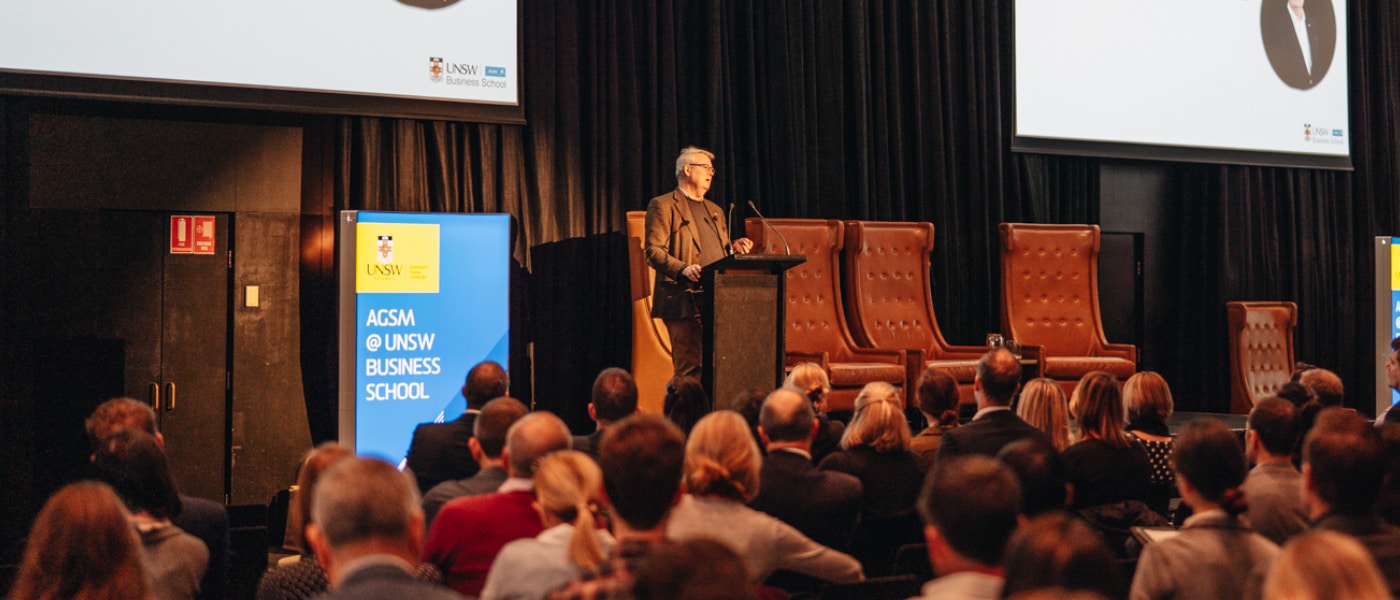
The role of the ethical leader in an accelerating world
Opinion + AnalysisBusiness + LeadershipRelationships
BY Simon Longstaff 9 JUL 2019
Dr Simon Longstaff, Executive Director of The Ethics Centre, opened the recent AGSM Professional Forum: Ethical Leadership in an Accelerating World by acknowledging today’s leaders are confronted with a pace of change that is increasingly rapid, complex and deep in its implications.
They are grappling with multiple dynamic forces as they make strategic business decisions, uncover new market opportunities, and maintain their sense of purpose.
And, as we move into the Age of Purpose, they must measure up to the moral expectations of their employees, stakeholders and the public – while building trust in an increasingly sceptical environment.
As one of Australia’s leading ethicists and philosophers, Dr Longstaff said he believes ethics need to be intrinsic within leaders, especially in a time where civilisation is going through enormous change. And this starts with leaders in the boardroom. “I’d like to reframe leadership itself as an ethical practice. You can’t just add ethics into leadership. If that’s what you’re doing, you’ve misunderstood what leadership is,” he said.
Strengthening the decision-making muscle
Historically, decision-making in organisations has been heavily regulated – and Dr Longstaff says that makes it due for an overhaul. Only then can more robust ethical practices flourish throughout organisations.
“For 30 years or more, leaders have been trying to manage the rate, complexity and depth of change through the exercise of control,” said Dr Longstaff. “In this country the most prolific regulators are not in parliaments or at APRA. They’re in the boardrooms of Australia.”
He says the system has been so finely meshed that no one can choose to do anything wrong. And as a result we’ve begun to create new forms of systemic risk.
“Inside corporations, there are measures designed to make it safe. But if you create a world in which no one can choose to do anything wrong, it also means no one can choose to do anything right,” said Dr Longstaff. “If you don’t choose – you comply. And like any skill, if this muscle isn’t used and flexed, it withers away.”
This systemic impact was most clearly demonstrated in the findings of the recent Royal Commission into Misconduct in the Banking, Superannuation and Financial Services Industry. The findings uncovered the implications of inaction and the way leadership behaviour can detrimentally impact stakeholder sentiment and damage trust in an organisation.
“In many cases of a compliant culture, when asked why a certain decision has been made, the answer is ‘that’s the way things have always been done’,” said Dr Longstaff. “But the fact we can do something doesn’t mean we should do it. To do so is a sign of a cultural failure, where ethical restraint should have been exercised.”
This is what Dr Longstaff calls ‘unintended negative strategic effect’: Something that can only be rectified by progressive and collaborative leaders.
“People are inherently good,” he said. “Leaders don’t wake up thinking ‘today I’m going to see how much hypocrisy I can engage in’. They are susceptible to the greater threat of unthinking custom and practice. And this must change,” he said.
Leading with moral courage and strategic vision
To create more ethical practices, Dr Longstaff suggests leaders guide their organisations through a process of ‘constructive subversion’ – to break the cycle of ‘going with the flow’ and embedding reflective practice within its culture.
“To subvert unthinking custom and practice, decision-making processes need to come back to the notion of purpose, values and principles,” says Dr Longstaff.
An organisation must have the right intent if it is to achieve its goals. To manage this, Dr Longstaff says leaders need these three key qualities:
- Moral courage – “Leaders need to have courage at the right time in the right way to offer the practice and skills to subvert unthinking.”
- Imagination – “Great leaders can imagine what it’s like to be somebody else, whether friend or foe, and understand how they see the world.”
- Strategic vision – “Leaders need the capacity to invent or discover inflection points – knowing when it’s time to action significant change.”
If leaders can set an organisation’s intention to realise its purpose-led potential, then their people can exercise their own discretion once they adopt this belief. This breaks the cycle of unthinking practice that leads to distrust from stakeholders and shareholders.
“Trust is not hard to build or sustain – there’s no real mystery about it. It’s created when individuals or organisations can declare publicly ‘this is who we are and this is what we stand for’ and act in a manner that is consistent with that’,” said Dr Longstaff.
In his keynote’s conclusion, Dr Longstaff came back to purpose and the existing structures that are in need of an overhaul.
“What is the purpose of a bank? A corporation? A market? Limited liability? All of them have purposes – and almost all of these have been forgotten,” said Dr Longstaff.
“As a society of citizens and colleagues, when we think about ethical leadership, we have to ask ourselves what we want and what will we settle for? A world of control, compliance and surveillance? Even if that was to work, would it diminish who we are as human beings?”
This article was originally published by UNSW, republished with permission.
Ethics in your inbox.
Get the latest inspiration, intelligence, events & more.
By signing up you agree to our privacy policy
You might be interested in…
Opinion + Analysis
Relationships, Politics + Human Rights
How to have a difficult conversation about war
READ
Business + Leadership
Meet James Shipton, our new Fellow uncovering the ethics of regulation
Opinion + Analysis
Business + Leadership
Beyond the shadows: ethics and resilience in the post-pandemic environment
Opinion + Analysis
Business + Leadership
Who are corporations willing to sacrifice in order to retain their reputation?
BY Simon Longstaff
Simon Longstaff began his working life on Groote Eylandt in the Northern Territory of Australia. He is proud of his kinship ties to the Anindilyakwa people. After a period studying law in Sydney and teaching in Tasmania, he pursued postgraduate studies as a Member of Magdalene College, Cambridge. In 1991, Simon commenced his work as the first Executive Director of The Ethics Centre. In 2013, he was made an officer of the Order of Australia (AO) for “distinguished service to the community through the promotion of ethical standards in governance and business, to improving corporate responsibility, and to philosophy.” Simon is an Adjunct Professor of the Australian Graduate School of Management at UNSW, a Fellow of CPA Australia, the Royal Society of NSW and the Australian Risk Policy Institute.
If you condemn homosexuals, are you betraying Jesus?
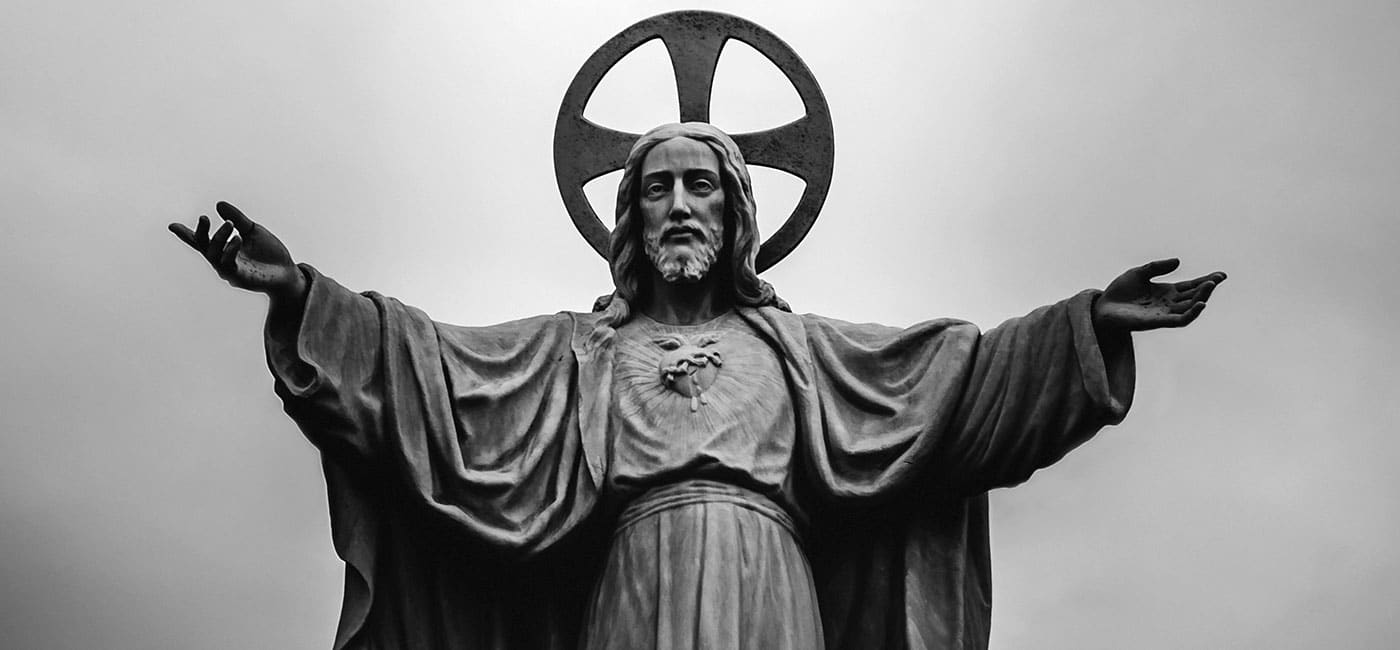
If you condemn homosexuals, are you betraying Jesus?
Opinion + AnalysisRelationships
BY Simon Longstaff 3 JUL 2019
The controversy surrounding Israel Folau’s Instagram posts has tended to focus on questions of free speech, religious freedom and employers’ rights. But I want to ask a deeper question: is Folau’s position consistent with the teachings and example of Christianity’s founder, Jesus of Nazareth?
In thinking about how one might answer this question, I make the following assumptions:
- that, as the incarnation of the divine, Jesus was incapable of error;
- that Jesus’s life and teachings are the ultimate source of authority for Christians;
- that the words and deeds of Jesus, as recorded in the four canonical Gospels, take precedence over those of any other theologian or interpreter (including Paul the Apostle); and
- that the New Testament has priority over the Old Testament ― to the extent that there is any disagreement.
So, what is the essence of Jesus’s life and teaching as revealed in the Gospels? Traditionally, the focus has been on Jesus’s offer of unconditional love and the associated blessing of healing ― both physical and spiritual (the latter through forgiveness of sins).
Jesus does not present himself as breaking with Judaism. He says explicitly that he has not come to overturn the Mosaic Law of his Jewish forebears, but to bring it to its fulfilment, to reveal its essence. On two occasions ― during the Sermon on the Mount and at the Last Supper ― Jesus speaks directly of the core principles on which the Torah is founded. On the earlier occasion, Jesus explicitly states that all of the law is expressed in the two “greatest” commandments: to love God with all one’s heart; to love one’s neighbour as oneself.
However, in the Gospel of John, Jesus goes one step further. John writes that, at the Last Supper, Jesus presents to his immediate disciples a final encapsulation of all his teaching. Affirming his direct connection with the Father, telling them that he is to ascend to heaven but will send a guide in the form of the Holy Spirit, Jesus issues his disciples with a new commandment. This is what John (13:33-35) reports Jesus to have said:
Whither I go, ye cannot come; so now I say to you. A new commandment I give unto you, That ye love one another; as I have loved you, that ye also love one another. By this shall all men know that ye are my disciples, if ye have love one to another.
Unlike the great commandment, with its appeal to the self-love of each person, the new standard for agape (the non-erotic love one bears for another) is to be Jesus’s love for his disciples ― his friends ― and, presumably, for humanity at large.
If the claims of Christians are to be accepted, then Jesus’s new commandment is not a mere act of prophecy, no matter how inspired. It is not an interpretation of a revelatory experience. If you accept the Gospel of John (as I think Christians do), then Jesus has uttered a direct commandment from God; inscribed not on stone but in the hearts and minds of those present. Jesus’s new law is to “love one another as I have loved you.” How then does Jesus love others?
First, each of the Gospels present Jesus as loving unconditionally. Not once does he set a threshold to be crossed before he bestows his love. He heals people without requiring them to become his disciples. He forgives without first requiring a renunciation of sin. He may counsel a better life, but does not make that a precondition of his love. Indeed, he specifically cautions “the righteous” to avoid judging others ― to refrain from casting the first stone.
This is not to say that Jesus is indifferent to sin. In common with the Jewish tradition, Jesus recognises sin as a form of ‘moral servitude’, a loss of freedom. However, there is nothing in the Nazarene’s ministry that condemns homosexuals to eternal damnation ― nor anyone else. Jesus even prays for the forgiveness of those who have ordered and undertaken his torture at Calvary.
Most importantly, Jesus does not merely tolerate those whom others hold in contempt ― he cosies up to them. He touches them. He shares meals with them. He defies the rituals and customs of ‘purity’, even those prescribed in the Old Testament. In doing so, Jesus offends the prevailing piety and invites the censure of those who withdraw from all that is deemed to be ‘unclean’.
How, then, does Christianity in our time become a religion so quick to judge and condemn, and so reluctant to love others without qualification? How do Christians, like Israel Folau, come to invoke contempt for others, to believe it acceptable to cast the first stone ― from the safe distance of a social media account? Would not a Christian follow Jesus’s example and offer hospitality to those who others treat with disgust ― share a meal, feel their humanity, offer companionship, without any strings attached?
Why, in other words, are many Christians ignoring Jesus? Perhaps interpreters and theologians, like the Apostle Paul, were more eloquent. Perhaps preachers have come to enjoy a measure of success by playing to the underlying prejudices of their audience. Perhaps human beings find it too hard to embrace Jesus’s message of radical love and forgiveness. As Dostoevsky’s Grand Inquisitor explains ― somewhat apologetically ― in The Brothers Karamazov, if Jesus was to walk the earth today, he would have to be destroyed all over again. The world ― including his church – finds Jesus just too difficult to cope with.
Or, perhaps the truth is something darker. Has a deep and ingrained sense of disgust ― about sex in general, and homosexuality in particular ― bound some Christians in chains even stronger than sin?
While I understand that there is no monolithic “Christian” point of view about homosexuality, I am genuinely confused by the notion that any Christian can see matters as Israel Folau does. This is not to doubt the sincerity of Folau and his Christian supporters. But sincerity does not excuse fundamental error.
Surely modern Christians can grasp that a person’s sexual orientation is not something simply chosen. We are born “hard wired” with our preferences. To say that a homosexual person is destined for hell is to claim that each such person is born an abomination in the sight of God. That is an obscene suggestion ― not only in the eyes of a secular society, but, if the Gospels are to be believed, in the eyes of the founder of Christianity itself. Not once does Jesus indicate contempt for any person.
So, again I ask, how is it that a church founded on the commitment to unconditional love has become home to the demons of righteous indignation? In whose name has that been done? Don’t tell me it is Jesus. If unconditional love, free from any condemnation, is offered to the man who nails you to a cross, then how can it be withheld from someone whose only sin is to have not been born a heterosexual?
In the same spirit, perhaps it’s time to call a truce in the proxy war over free speech and religious freedom. It’s time for his detractors to practice what Jesus preached and reach out to Israel Folau; to extend to him friendship and understanding; to share a meal with him and offer him unconditional forgiveness ― for he knows not what he does.
This article was originally published by ABC , republished with permission.
Ethics in your inbox.
Get the latest inspiration, intelligence, events & more.
By signing up you agree to our privacy policy
You might be interested in…
Opinion + Analysis
Politics + Human Rights, Relationships, Society + Culture
The sticky ethics of protests in a pandemic
Big thinker
Relationships
Big Thinker: Joanna Bourke
Big thinker
Politics + Human Rights, Relationships
Big Thinker: Eleanor Roosevelt
Opinion + Analysis
Relationships, Climate + Environment
Blindness and seeing
BY Simon Longstaff
Simon Longstaff began his working life on Groote Eylandt in the Northern Territory of Australia. He is proud of his kinship ties to the Anindilyakwa people. After a period studying law in Sydney and teaching in Tasmania, he pursued postgraduate studies as a Member of Magdalene College, Cambridge. In 1991, Simon commenced his work as the first Executive Director of The Ethics Centre. In 2013, he was made an officer of the Order of Australia (AO) for “distinguished service to the community through the promotion of ethical standards in governance and business, to improving corporate responsibility, and to philosophy.” Simon is an Adjunct Professor of the Australian Graduate School of Management at UNSW, a Fellow of CPA Australia, the Royal Society of NSW and the Australian Risk Policy Institute.
Israel Folau: appeals to conscience cut both ways

Israel Folau: appeals to conscience cut both ways
Opinion + AnalysisRelationships
BY Simon Longstaff 26 JUN 2019
Israel Folau’s now infamous post in which he called on a range of “sinners” to repent, turn to Jesus Christ and thus be saved from an eternity in Hell has had more consequences than I suspect he anticipated.
It has led to his loss of employment. It has elevated his status to that of a champion for conservative Christian beliefs.
Finally, it has prompted widespread debate about the intersection between religious belief and the world of work.
It is this last issue that deserves further discussion.
Religious freedom comes in four basic forms: freedom of belief, freedom of worship, freedom to act in good conscience (which includes freedom from coercion in matters of religion) and finally freedom to proselytise (which includes the right to educate one’s children in the faith). Folau’s case involves the third and fourth of these freedoms.
What Folau believes and how he worships have not been challenged. Rather, he has been sanctioned for what he has done and said — not as a believer, but in his role as an elite rugby player representing Australia. However, can the two roles of “believer” and “contracted player” be so easily separated? That is the question at the heart of this issue.
What are Folau’s rights?
As a committed Christian, Folau obviously feels compelled to act on his beliefs — in this case by posting tweets and instagram posts directed at those who risk damnation. Within his world view, he is simply following the scriptural injunction to: “Go into all the world and proclaim the gospel to the whole creation. Whoever believes and is baptised will be saved, but whoever does not believe will be condemned.” (Mark16:15)

So, we might ask if it is right and proper that a person of such sincere religious beliefs has lost his job and been denied at least one platform for fundraising to defend his interests before the courts.
As a general rule, there is only one group of employers — faith groups — who claim a right to dismiss people from employment because of their religious beliefs. For example, a number of religious organisations have argued that their schools should be allowed to deny employment to otherwise competent people who do not practise their religion. It follows from this that employees who renounce the faith of the school would be open to dismissal.
No other employer may discriminate against a person based on their religious beliefs. So, given that rugby is not a religion (despite what some claim), how did Folau come to lose his lucrative employment — a risk that is now faced by his wife, Maria Folau, one of Australasia’s preeminent netball athletes and a Christian who supports her husband’s views?
Brands have a right to protect their interests
In order to broaden the debate, let’s consider the case of a Christian who believes that the Pope is the Antichrist and that Roman Catholics are all destined for Hell. Such views are not “hypothetical”. They were openly held by the Northern Ireland religious and political leader, the Reverend Ian Paisley.
In 1958, he condemned Princess Margaret and the Queen Mother for “committing spiritual fornication and adultery with the Antichrist” after they met with Pope John XXIII. Thirty years later, Paisley denounced Pope John Paul II as the Antichrist — to his face — while the latter addressed the European Union Parliament.
Now suppose an employee is of a mind similar to Paisley — so publishes a tweet attacking the head of the Catholic Church and all of its adherents in equivalent terms. Suppose the employee does so on the basis of what he considers to be a well-founded and sincere religious belief. However, in this case, it’s not just a vulnerable minority group who’s affected — but more than a billion Roman Catholics and their immensely wealthy and powerful church.
Let’s suppose that the “Paisleyite” employee is a prominent brand ambassador working for a major bank. After the tweet, all hell breaks loose. Upset employees threaten to resign, customers threaten to close their accounts, investors begin to dump the stock, etc.
Would an employer be justified in calling such a person to account? Or should the bank respect the expression of sincere, religious belief and defend the right of the brand ambassador to express such views — no matter what damage is done?
It seems reasonable that employers be free to take steps to protect themselves from the kind of strategic risk caused by well-intentioned, loose cannons like the hypothetical brand ambassador sketched above.
This should allow employers to put in place measures designed to protect their interests — and then ask their employees to act accordingly.
Employees have a right to choose too
There is an important point to be noted here. The employer has a right to define how its interests are to be protected. However, it falls to the employee to accept (or not) the relevant conditions of employment.
Any person who truly feels unable to accept those conditions should either not accept an offer of employment or if already part of the organisation, then they should consider resigning in order to find a place of employment better aligned with their moral compass.
This brings us back to the ethical core of the problem raised by the Folau case. Is it ever right for an employer to demand that an employee leave their conscience at the door? I think that the answer is no.
However, if the conscience of an employee should be respected, then so should that of the employer. No individual or organisation is required to be complicit in conduct that it sincerely believes to be wrong.
This is the ground on which Rugby Australia and GoFundMe have both stood. They have decided not to enable the propagation of views that they hold to be ethically objectionable. Rugby Australia’s employment of Folau as one of Australia’s elite sportsmen afforded him (and his views about sin) a prominence that others do not enjoy. They have denied him access to the platform they had provided to him.
Folau was never just a player. He has always been, in part, a brand ambassador. GoFundMe denied Folau its platform after he allegedly violated its terms of service.
Folau chose religion
What both sides of this debate need to consider are the requirements for even-handedness and proportionality. Those who act in the name of conscience — employees and employers — need to be sincere. They need to protect their position with the minimal restrictions necessary. They need to be even-handed — treating like issues and persons in a like manner. And they need to accept the reasonable consequences of their actions.
Folau must have known that labelling homosexuals (among others) as sinners destined for Hell would be incendiary — and risk damaging Rugby Australia.
After all, this was not the first time he had been vocal in his views. In the end, his choice was between what he understood to be his duty to his employer and what he understood to be his duty to his God. Folau chose to put his religion first.
Conscience is not a convenient friend. It often comes with consequences; some good, some ill.
Neither Rugby Australia nor GoFundMe has silenced Folau. He is still acting and speaking in accordance with his religious beliefs. He is still able to raise funds for his defence — as demonstrated by the swift offer of support provided by the Australian Christian Lobby. Folau still has a public platform — which he continues to utilise, as is his right.
Kicked out of the temple, Israel Folau remains free to preach in the public square.
Dr Simon Longstaff originally wrote this piece for ABC News. Photo credit: David Molloy
Ethics in your inbox.
Get the latest inspiration, intelligence, events & more.
By signing up you agree to our privacy policy
You might be interested in…
Opinion + Analysis
Business + Leadership, Relationships, Society + Culture
Renewing the culture of cricket
Opinion + Analysis
Relationships
Will I, won’t I? How to sort out a large inheritance
Opinion + Analysis
Business + Leadership, Relationships
The twin foundations of leadership
Opinion + Analysis
Business + Leadership, Relationships
How the Canva crew learned to love feedback
BY Simon Longstaff
Simon Longstaff began his working life on Groote Eylandt in the Northern Territory of Australia. He is proud of his kinship ties to the Anindilyakwa people. After a period studying law in Sydney and teaching in Tasmania, he pursued postgraduate studies as a Member of Magdalene College, Cambridge. In 1991, Simon commenced his work as the first Executive Director of The Ethics Centre. In 2013, he was made an officer of the Order of Australia (AO) for “distinguished service to the community through the promotion of ethical standards in governance and business, to improving corporate responsibility, and to philosophy.” Simon is an Adjunct Professor of the Australian Graduate School of Management at UNSW, a Fellow of CPA Australia, the Royal Society of NSW and the Australian Risk Policy Institute.
After Christchurch

After Christchurch
Opinion + AnalysisBusiness + LeadershipPolitics + Human RightsRelationships
BY Simon Longstaff 19 MAR 2019
What is to be said about the murder of innocents?
That the ends never justify the means? That no religion or ideology transmutes evil into good? That the victims are never to blame? That despicable, cowardly violence is as much the product of reason as it is of madness?
What is to be said?
Sometimes… mute, sorrowful silence must suffice. Sometimes… words fail and philosophy has nothing to add to our intuitive, gut-wrenching response to unspeakable horror.
Thus, we bow our heads in silence… to honour the dead, to console the living, to be as one for the sake of others.
In that silence… what is to be said?
Nothing.
Yet, I feel compelled to speak. To offer some glimmer of insight that might hold off the dark — the dark shades of vengeance, the dark tides of despair, the dark pools of resignation.
So, I offer this. Even in the midst of the greatest evil there are people who deny its power. They are rare individuals who perform ‘redemptive’ acts that affirm what we could be. Some call them saints or heroes. They are both and neither. They are ordinary people who act with pure altruism – solely for the sake of others, with nothing to gain.
One such person is with me every day. The Polish doctor and children’s author, Janusz Korczak, cared for orphaned Jewish children confined to the Warsaw Ghetto. At last, the time came when the children were to be transported to their place of extermination. Korczak led his children to the railway station — but was stopped along the way by German officers. Despite being a Jew, Korczak was so revered as to be offered safe passage.
To choose life, all he need do was abandon the children. At the height of the Nazi ascendancy, Korczak had no reason to think that he would be remembered for a heroic but futile death. He had nothing to gain. Yet, he remained with the children and with them went to his death. He did so for their sake — and none other. In that decision, he redeemed all humanity — because what he showed is the other face of our being, the face that repudiates the murderer, the terrorist, the racist…the likes of Brenton Tarrant.
I know that many people do not believe in altruism. They will offer all manner of reasons to explain it away, finding knotholes of self-interest that deny the nobility of Janusz Korczak’s final act. They are wrong. I have seen enough of the world to know that pure acts of altruism are rare — but real. And it only takes one such act to speak to us of our better selves.
We will never know precisely what happened in those mosques targeted in Christchurch. However, I believe that, in the midst of the terror, there were people who performed acts of bravery, born out of altruism, of a kind that should inspire and ultimately comfort us all.
Most of these stories will be untold — lost to the silence. Of a few, we may hear faint whispers. But believe me, the acts behind those stories are every bit as real as the savagery they confronted and confounded. And even when whispered, they are more powerful.
Evil born of hate can never prevail. It offers nothing and consumes all — eventually eating its own. That is why good born of love must win the ultimate victory. Where hate takes, love gives — ensuring that, in the end, even a morsel of good will tip the balance.
You might say to me that this is not philosophy. Where is the crisp edge of logic? Where is the disinterested and dispassionate voice of reason? Today, that voice is silent. Yet, I hope you can hear the truth all the same.
Dr Simon Longstaff AO is Executive Director of The Ethics Centre.
Ethics in your inbox.
Get the latest inspiration, intelligence, events & more.
By signing up you agree to our privacy policy
You might be interested in…
Opinion + Analysis
Relationships, Science + Technology
To see no longer means to believe: The harms and benefits of deepfake
Opinion + Analysis
Relationships, Society + Culture
Meet Eleanor, our new philosopher in residence
Opinion + Analysis
Relationships, Society + Culture
Nothing But A Brain: The Philosophy Of The Matrix: Resurrections
Big thinker
Relationships
Big Thinker: David Hume
BY Simon Longstaff
Simon Longstaff began his working life on Groote Eylandt in the Northern Territory of Australia. He is proud of his kinship ties to the Anindilyakwa people. After a period studying law in Sydney and teaching in Tasmania, he pursued postgraduate studies as a Member of Magdalene College, Cambridge. In 1991, Simon commenced his work as the first Executive Director of The Ethics Centre. In 2013, he was made an officer of the Order of Australia (AO) for “distinguished service to the community through the promotion of ethical standards in governance and business, to improving corporate responsibility, and to philosophy.” Simon is an Adjunct Professor of the Australian Graduate School of Management at UNSW, a Fellow of CPA Australia, the Royal Society of NSW and the Australian Risk Policy Institute.
Blockchain: Some ethical considerations

Blockchain: Some ethical considerations
Opinion + AnalysisBusiness + LeadershipScience + Technology
BY Simon Longstaff 16 MAR 2019
The development and application of blockchain technologies gives rise to two major ethical issues to do with:
- Meeting expectations – in terms of security, privacy, efficiency and the integrity of the system, and
- The need to avoid the inadvertent facilitation of unconscionable conduct: crime and oppressive conduct that would otherwise be offset by a mediating institution
Neither issue is unique to blockchain. Neither is likely to be fatal to its application. However, both involve considerable risks if not anticipated and proactively addressed.
At the core of blockchain technology lies the operation of a distributed ledger in which multiple nodes independently record and verify changes on the block. Those changes can signify anything – a change in ownership, an advance in understanding or consensus, an exchange of information. That is, the coding of the blockchain is independent and ‘symbolic’ of a change in a separate and distinct real-world artefact (a physical object, a social fact – such as an agreement, a state of affairs, etc.).
The potential power of blockchain technology lies in a form of distribution associated with a technically valid equivalent of ‘intersubjective agreement’. Just as in language the meaning of a word remains stable because the agreement of multiple users of that word, so blockchain ‘democratises’ agreement that a certain state of affairs exists. Prior to the evolution of blockchain, the process of verification was undertaken by one (or a few) sources of authority – exchanges and the like. They were the equivalent of the old mainframe computers that formerly dominated the computing landscape until challenged by PC enabled by the internet and world wide web.
Blockchain promises greater efficiency (perhaps), security, privacy and integrity by removing the risk (and friction) that arises out of dependence on just one or a few nodes of authority. Indeed, at least some of the appeal of blockchain is its essentially ‘anti-authoritarian’ character.
However, the first ethical risk to be managed by blockchain advocates is that they not over-hype the technology’s potential and then over-promise in terms of what it can deliver. The risk of doing either can be seen at work in an analogous field – that of medical research. Scientists and technologists often feel compelled to announce ‘breakthroughs’ that, on closer inspection, barely merit that description. Money, ego, peer group pressure – these and other factors contribute to the tendency for the ‘new’ to claim more than can be delivered.
“However, the first ethical risk to be managed by blockchain advocates is that they not over-hype the technology’s potential and then over-promise in terms of what it can deliver.”
It’s not just that this can lead to disappointment – very real harm can befall the gullible. One can foresee an indeterminate period of time during which the potential of blockchain is out of step with what is technically possible. It all depends on the scope of blockchain’s ambitions – and the ability of the distributed architecture to maintain the communications and processing power needed to manage and process an explosion in blockchain related information.
Yet, this is the lesser of blockchain’s two major ethical challenges. The greater problem arises in conditions of asymmetry of power (bargaining power, information, kinetic force, etc.) – where blockchain might enable ‘transactions’ that are the product of force, fear and fraud. All three ‘evils’ destroy the efficiency of free markets – and from an ethical point of view, that is the least of the problems.
“The greater problem arises in conditions of asymmetry of power (bargaining power, information, kinetic force, etc.) – where blockchain might enable ‘transactions’ that are the product of force, fear and fraud.”
One advantage of mediating institutions is that they can provide a measure of supervision intended to identify and constrain the misuse of markets. They can limit exploitation or the use of systems for criminal or anti-social activity. The ‘dark web’ shows what can happen when there is no mediation. Libertarians applaud the degree of freedom it accords. However, others are justifiably concerned by the facilitation of conduct that violates the fundamental norms on which any functional society must be based. It is instructive that crypto-currencies (based on blockchain) are the media of exchange in the rankest regions of the dark web.
So, how do the designers and developers of blockchain avoid becoming complicit in evil? Can they do better than existing mediating institutions? May they ‘wash their hands’ even when their tools are used in the worst of human deeds?
This article was first published here. Dr Simon Longstaff presented at The ADC Global Blockchain Summit in Adelaide on Monday 18 March on the issue of trust and the preservation of ethics in the transition to a digital world.
Ethics in your inbox.
Get the latest inspiration, intelligence, events & more.
By signing up you agree to our privacy policy
You might be interested in…
Opinion + Analysis
Business + Leadership
Susan Lloyd-Hurwitz on diversity and urban sustainability
Opinion + Analysis
Business + Leadership
Has passivity contributed to the rise of corrupt lawyers?
Opinion + Analysis
Business + Leadership
Georg Kell on climate and misinformation
Opinion + Analysis
Business + Leadership
How avoiding shadow values can help change your organisational culture
BY Simon Longstaff
Simon Longstaff began his working life on Groote Eylandt in the Northern Territory of Australia. He is proud of his kinship ties to the Anindilyakwa people. After a period studying law in Sydney and teaching in Tasmania, he pursued postgraduate studies as a Member of Magdalene College, Cambridge. In 1991, Simon commenced his work as the first Executive Director of The Ethics Centre. In 2013, he was made an officer of the Order of Australia (AO) for “distinguished service to the community through the promotion of ethical standards in governance and business, to improving corporate responsibility, and to philosophy.” Simon is an Adjunct Professor of the Australian Graduate School of Management at UNSW, a Fellow of CPA Australia, the Royal Society of NSW and the Australian Risk Policy Institute.
How will we teach the robots to behave themselves?

How will we teach the robots to behave themselves?
Opinion + AnalysisScience + Technology
BY Simon Longstaff 5 MAR 2019
The era of artificial intelligence (AI) is upon us. On one hand it is heralded as the technology that will reshape society, making many of our occupations redundant.
On the other, it’s talked about as the solution that will unlock an unfathomable level of processing efficiency, giving rise to widespread societal benefits and enhanced intellectual opportunity for our workforce.
Either way, one thing is clear – AI has an ability to deliver insights and knowledge at a velocity that would be impossible for humans to match and it’s altering the fabric of our societies.
The impact that comes with this wave of change is remarkable. For example, IBM Watson has been used for early detection of melanoma, something very close to home considering Australians and New Zealanders have the highest rates of skin cancer in the world. Watson’s diagnostic capacity exceeds that of most (if not all) human doctors.
Technologists in the AI space around the world are breaking new ground weekly – that is an exciting testament to humankind’s ability. In addition to advancements in healthcare, 2018 included milestones in AI being used for autonomous vehicles, with the Australian government announcing the creation of a new national office for future transport technologies in October.
However, the power to innovate creates proportionately equal risk and opportunity – technology with the power to do good can, in almost every case, be applied for bad. And in 2019 we must move this conversation from an interesting dinner-party conversation to a central debate in businesses, government and society.
AI is a major area of ethical risk. It is being driven by technological design processes that are mostly void of robust ethical consideration – a concern that should be the top of the agenda for all of us. When technical mastery of any kind is divorced from ethical restraint the result is tyranny.
The knowledge that’s generated by AI will only ever be the cold logic of the machine. It lacks the nuanced judgment that humans have. Unless AI’s great processing power is met and matched with an equal degree of ethical restraint, the good it creates is not only lost but potentially damaging.The lesson we need to learn is this: just because we can do something doesn’t mean that we should.
Ethical knowledge
As citizens, our priority must be to ensure that AI works in the interests of the many rather than the few.
Currently, we’re naively assuming that the AI coders and developers have the ethical knowledge, understanding and skills to navigate the challenges that their technological innovations create.
In these circumstances, sound ethical judgment is just as important a skill as the ability to code effectively. It is a skill that must be learned, practised and deployed. Yet, very little ethical progress or development has been made in the curriculum to inform the design and development of AI.
This is a “human challenge” not a “technology challenge”. The role of people is only becoming more important in the era of AI. We must invest in teaching ethics as applied to technological innovation.
Building a platform of trust
In Australia, trust is at an all-time low because the ethical infrastructure of our society is largely damaged – from politics to sport to religious institutions to business. Trust is created when values and principles are explicitly integrated into the foundations of what is being designed and built. Whatever AI solution is developed and deployed, ethics must be at the core – consciously built into the solutions themselves, not added as an afterthought.
Creating an ethical technologically advanced culture requires proactive and intentional collaboration from those who participate in society: academia, businesses and governments. Although we’re seeing some positive early signs, such as the forums that IBM is creating to bring stakeholders from these communities together to debate and collaborate on this issue, we need much more of the same – all driven by an increased sense of urgency.
To ensure responsible stewardship is at the centre of the AI era, we need to deploy a framework that encourages creativity and supports innovation, while holding people accountable.
This story first appeared on Australian Financial Review – republished with permission.



